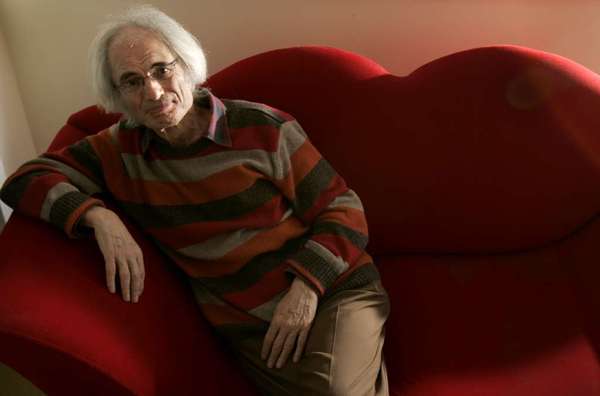“I’m living alone now. My wife, with whom we were friends for 47 years, is not with me for already 11 years. We were admitted to the Conservatory together, we graduated together, she was awarded honors diploma and I was awarded a regular diploma. She was a musicologist, but never tried to leave the field of pedagogy. She could be useful in a variety of areas, such as writing a book review, but she was thinking that she has no right to write an article. She was thinking that no matter what she writes, people would say that it is also my opinion … She wished me to donate a piece of work to her, and when I learned that she is seriously ill, I wrote a song based on one of the poems by Charents and donated to her… We lived a good life together,” said Tigran Mansurian sharing with his memories and thoughts during the meeting organized at the “Loft” self-development center on September 12.
Years ago, Maestro made friends with Sos Sargsyan, Sergey Parajanov, Hrant Matevosyan, Paruyr Sevak, and Martiros Saryan. “Oh my God, what a friendship it was!… Sevak liked fighting, “explosive,” but was also like a big brother. With Sarian, we were more grandfather and grandson relations than friendly. This friendship that once existed was very meaningful and thorough. If you attract attention when you are young, you immediately appeared in the family of artists. Now, I am living a kind of closed, but I have very good friends. These are the books and the records,” he said.
Tigran Mansurian believes that the Armenian music has two wings: one is popular, the other – spiritual. “Praying with music means being in yourself… I mean, I grew up in Artik. The songs of my old days are the songs of the Shirak valley. Except for Turkish songs, I like the songs of all peoples. The Turkish language abuses my ear. For me, Komitas is precious like sanctity. He is there where the folklore, spiritual music and dances are … There are songs that contain so much light. I cannot imagine my being a musician without Armenia. Certainly, there are artists who are established in abroad, for example, Garzu, Jansem, and Aznavour. But I do not think that this could be my case. When we return to homeland – Armenia, my father’s dream was me to become a musician. Do not think that in the years it was easy to be in integrated in Armenia. But I am thankful for the challenges, joys and losses, all of them are given by God. A man must experience tortures too. I have not studied music, I have not gone to music school, I have learned to play myself. There was no one whom I could ask anything about the music.”
Siranush HAYRAPETYAN
























































